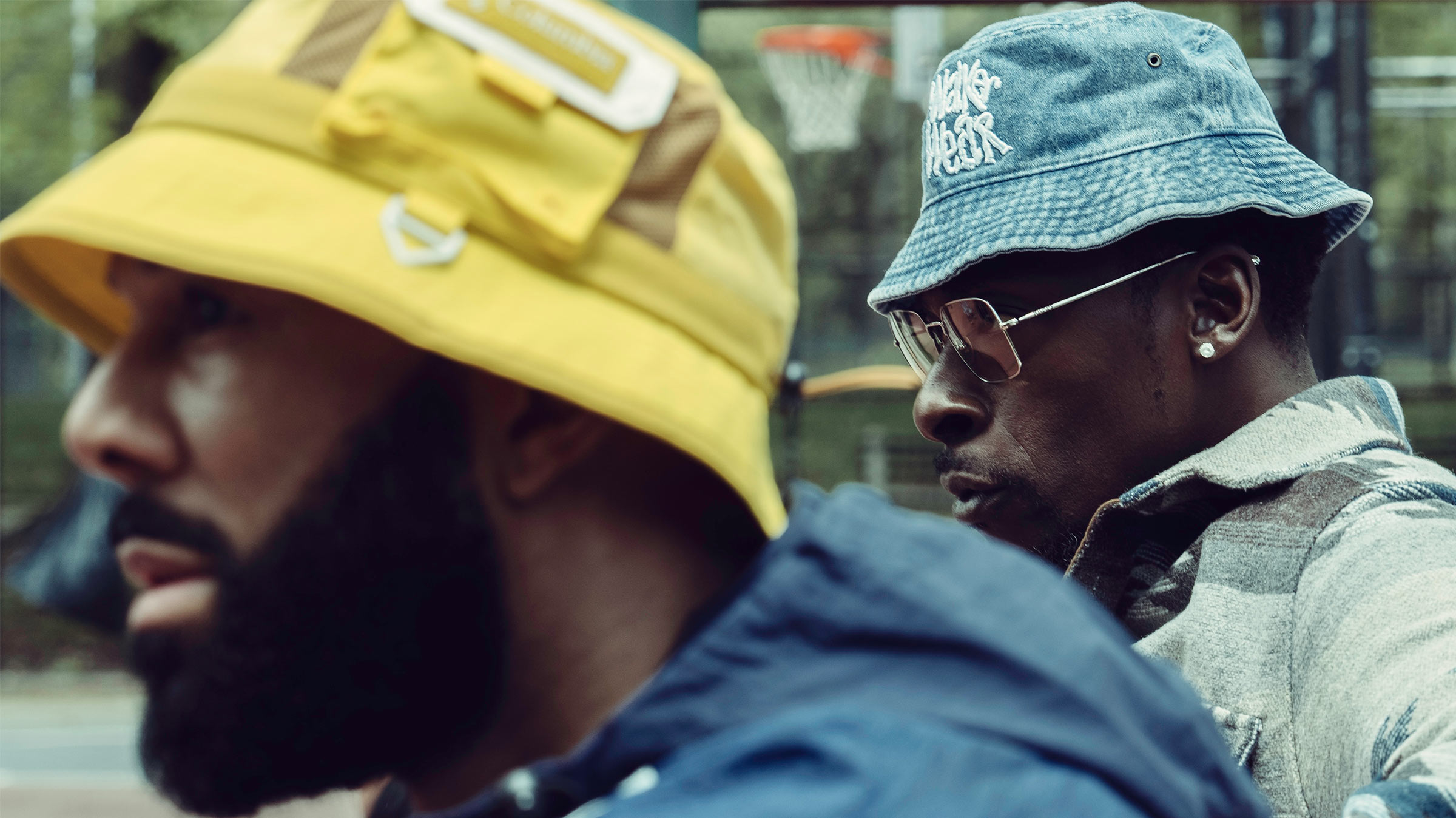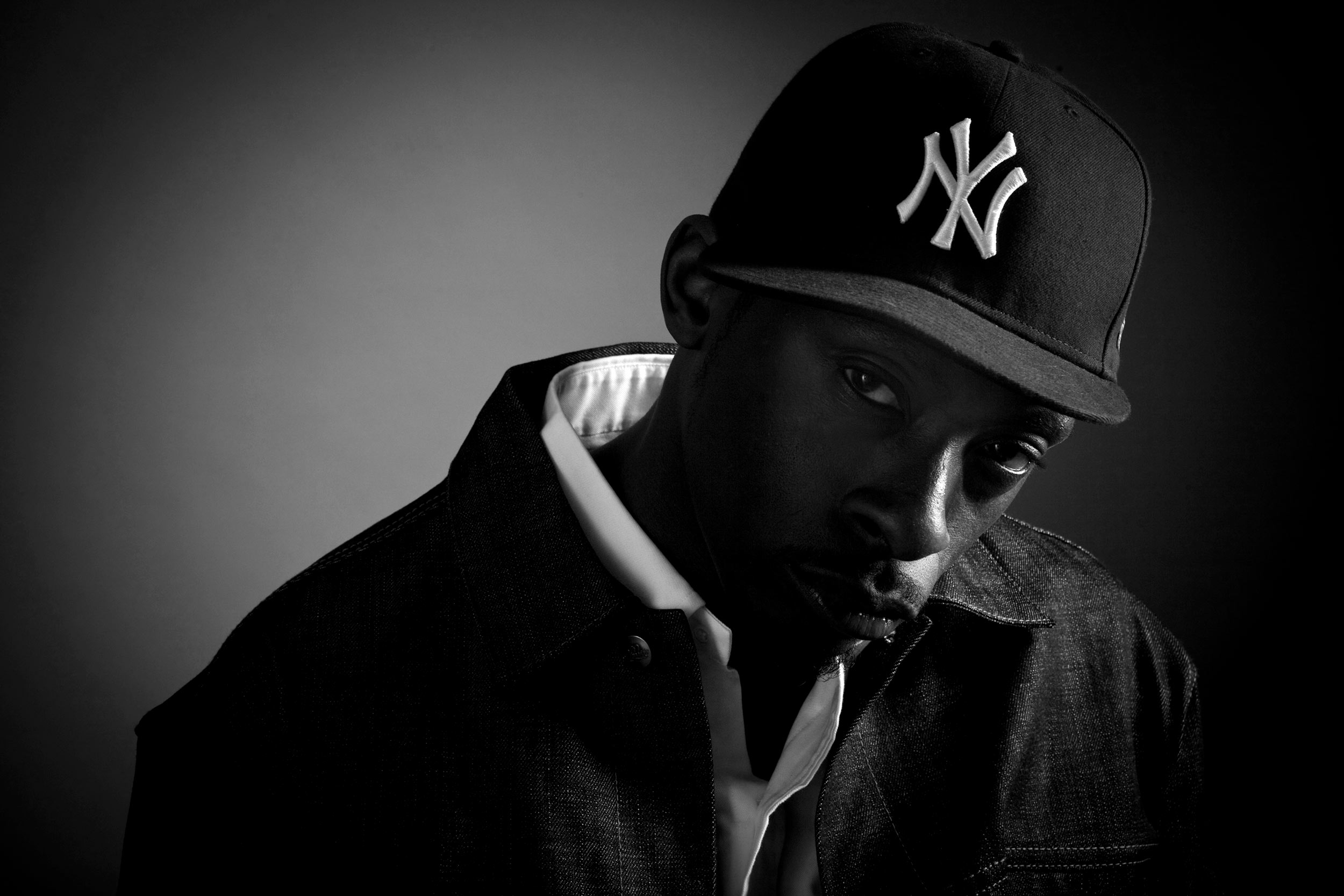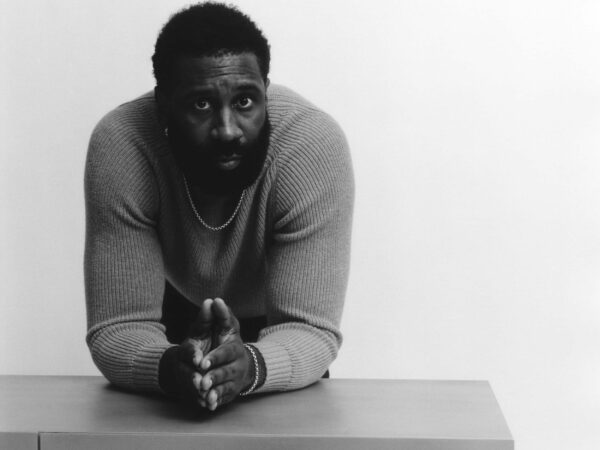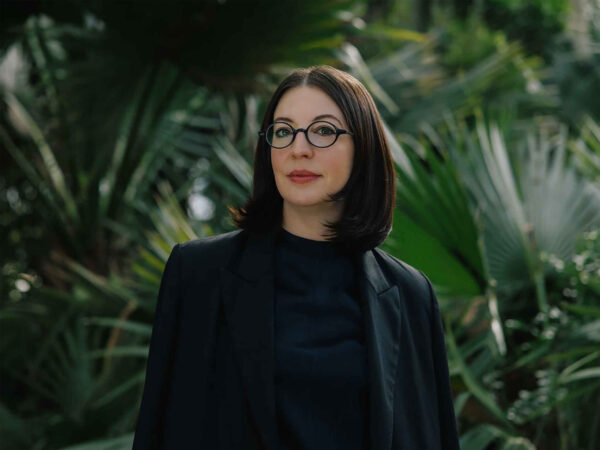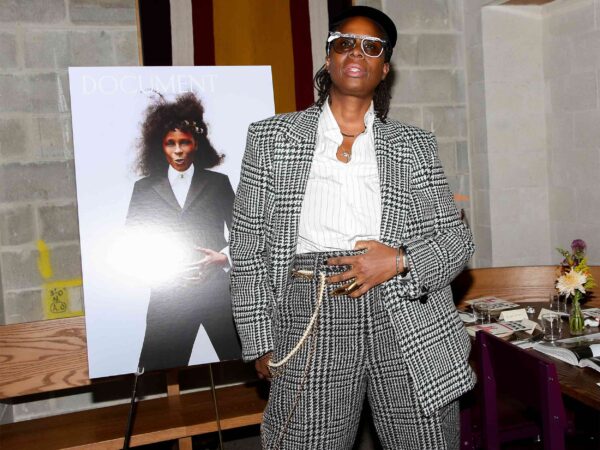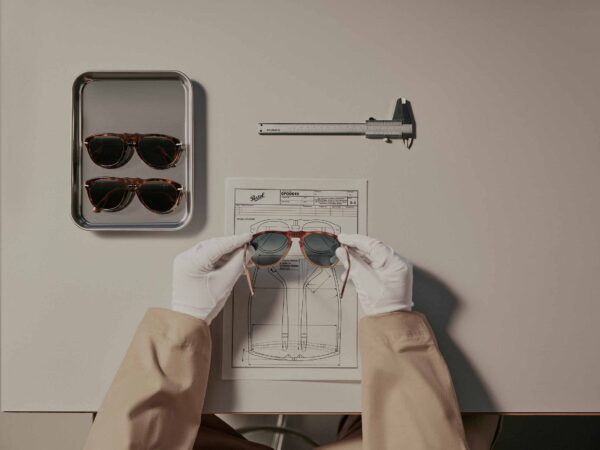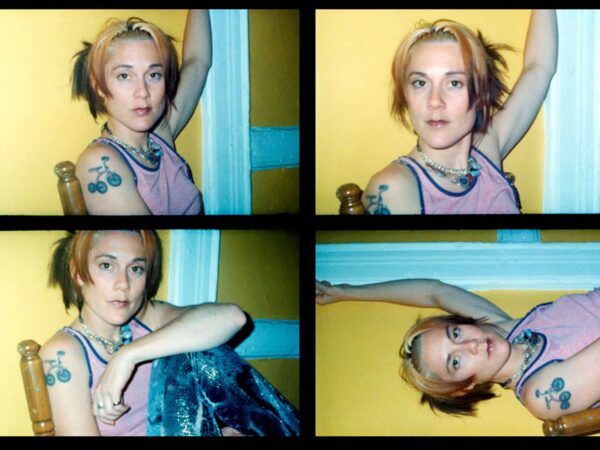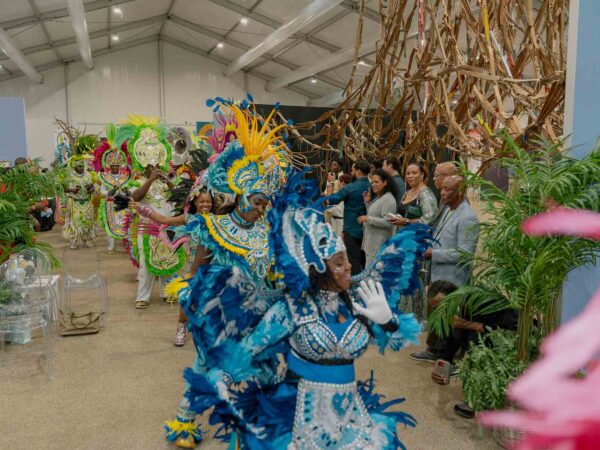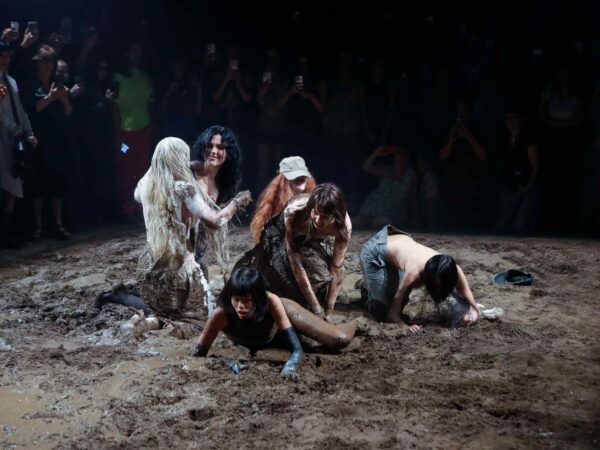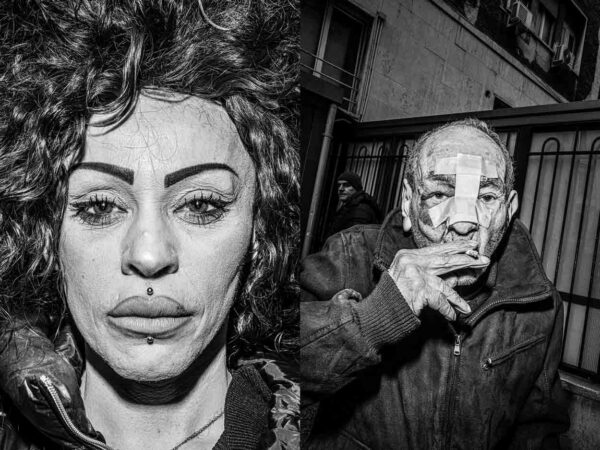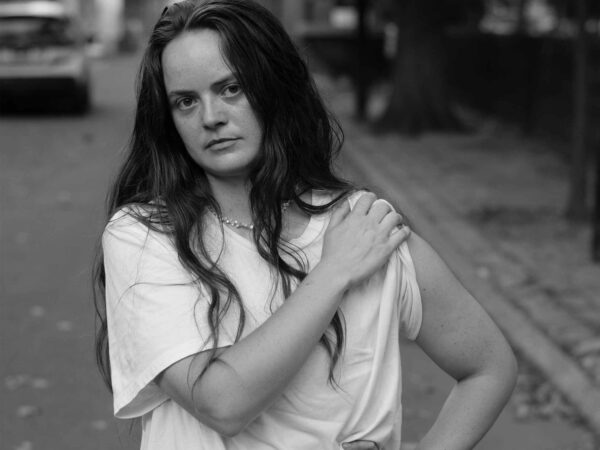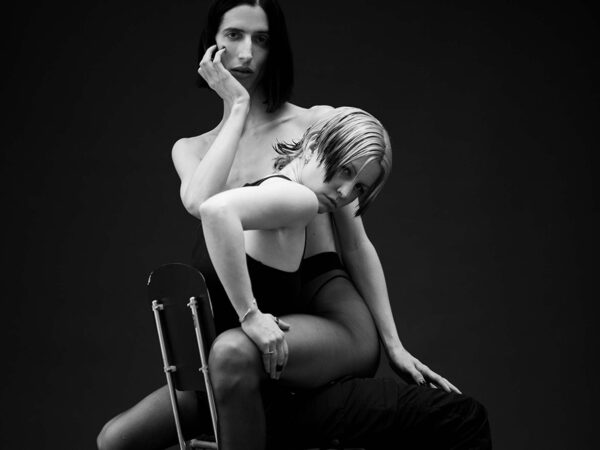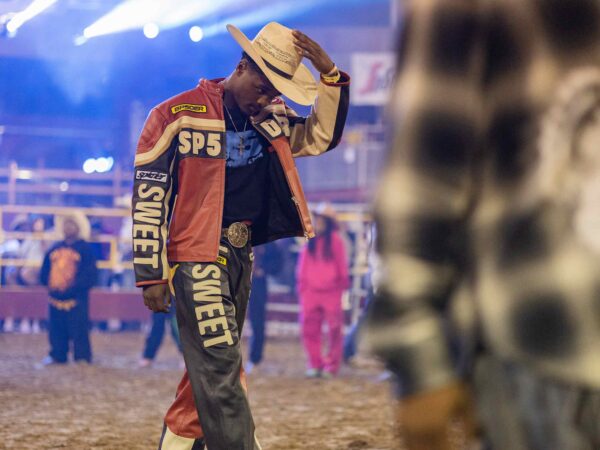Ahead of his performance at The Black Radio Experience music festival, the legendary DJ and producer sits down with Document to discuss his love for hip hop
Hip hop has many origin stories: the invention of scratching at DJ Cool Herc’s parties in the ’70s, the birth of boom bap in the ’80s, the emergence of trap hi-hat patches in the 2010s. “Hip hop is always bigger than me,” says legendary Bronx-born DJ and hip hop producer Pete Rock, a key musical mind in establishing the East Coast rap sound of the ’90s. Known best for his fluid beats and encyclopedic music knowledge, a Pete Rock cut guarantees timelessness—“They Reminisce Over Your (T.R.O.Y.)” with C.L. Smooth, “Fakin Jax” with InI, and “The World Is Yours” with Nas, to name a few. His most recent album, The Auditorium Vol. 1, a collaboration with rapper Common, is a reminder of just how expansive hip hop’s dictionary can be. The project mobilizes the breadth of a hip hop language 50 years in the making with ’90s-influenced tracks like “Lonesome,” and the jazzy “When The Sun Shines Again,” a track that sparkles with the smooth flow of Posdnuos over a sample of Joe Sample’s “Voices In The Rain.”
Ahead of his highly anticipated performance with Common at The Black Radio Experience music festival August 30–September 1 in Napa, California, Document sat down with Pete Rock to discuss the evolution of hip hop, the importance of trusting your impulses as a musician, and his enduring love for the art form.
Maya Kotomori: I have to start off by saying that you are one of the greatest hip hop producers of all time.
Pete Rock: Thank you, thank you.
Maya: I feel like with your longstanding relationship to hip hop, reputation and respect mean a lot of things to the art form. I wanted to ask, what do reputation and respect mean to you in a career sense, but also in the personal sense as a part of this larger legion of people who shaped this thing called hip hop?
Pete: Well, respect goes a long way in the business, when you earn it, you know. I felt through my career, all the hard work I did [adds] up to earning my keep, and I take that seriously. Reputation is very important because it leads a trail of goodness to you. I believe we should all exercise that as much as we possibly can.
Respect goes within, it’s definitely connected to the music life and to real life. With respect, what happens in music happens in real life. So when you carry yourself in a certain way, you demand it. When you can carry that out as a musician, as a person, it can go a long way.
Maya: Earlier on in your career, when you got that respect from an emcee you admired or a fellow producer you admired, what was that like as you were coming up?
Pete: One of the most powerful moments for me in the music business was probably me producing “Down with the King” with Run DMC. I was the biggest fan of them. I remember any time they were dropping something new, I would run to the record store and grab it. That was one of the pinnacle moments for me, besides working with Heavy D.
Maya: May he rest in peace. I’m also thinking about how hip hop has changed, specifically in this moment as the art form turns 51. I’m wondering, what does Hip Hop 50 mean to you in terms of the music as well as the broader hip hop community?
Pete: It means a lot to every one of us. What I love the most about it is seeing artists again, reuniting on the stage for a greater cause which was our culture. I believe hip hop is the biggest genre of music, period. We always want to be teaching what we’ve learned back to our community so we can keep the culture alive.
Maya: Also to preserve those stories as well. There’s so many styles of hip hop that have emerged regionally. And even thinking back to previous regional rap beef between West Coast and East Coast. What do you think about rap beef as a concept, but also the diss track as a part of the art form?
Pete: Well, I wouldn’t call it rap beef. There’s no such thing as beef in hip hop, in my opinion. It really isn’t supposed to be. It was devastating for us, losing Biggie and [Tu]Pac, Big L, who died violently. As far as hip hop is concerned, we go back and forth, displaying our skills and trying to be the man on top. We call this battling, and it’s not supposed to go further than the wax. That’s all it should be. But we have people in the industry who love money, and they say ‘gangsta, sex, money, murder’ and it sells records, right?
We purists never cared about that, we only wanted to stay in the realm of battling. When it came to hip hop, it’s a fun thing to do, showing off your bravado, not taking it to the streets with real violence. So as far as rap beef goes, I’m not into rap beef, but the battling. The Kendrick Lamar and the Drake thing though, that’s a great example of what hip hop is about and what it should be about.
We don’t want our brothers fighting each other for real like this. When I got into hip hop, it was an opportunity. It was like a dream come true to be able to represent and develop a talent. Have people love what you do because you love the culture, embrace you. That’s what it’s supposed to be about.
“I try to teach that through my music, to have different angles and never be afraid to go left or right and then back left again.”
Maya: Absolutely. You made a great point about money, how do you think the money has changed hip hop, 51 years later?
Pete: For me, when you get hip hop involved, there’s just not enough money for everybody like they claim. When you made it back in the ’90s… we were trained on how music is supposed to sound, and how we’re supposed to make music, and how we’re supposed to talk about it and how we’re supposed to rap. All of that becomes very important because whether you like it or not, you become an instant role model when you’re successful. So you have to remember who’s looking at you and who’s looking up to you. With that said, I’m saying that overall, hip hop is a great opportunity, and everyone should have a chance to do something, but you have to have true talent. You can’t just wake up without practicing your craft and think you have something to offer the world, you know?
The point [of hip hop] is to give everyone the good medicine, do you know what I’m sayin’? Music is healing in that way. When it comes to hip hop and money, it’s not enough in the way that we’re being treated, with streaming services that either don’t pay enough or don’t pay at all.
Maya: I feel like this has made hit records a little bit different. What made a hit hip hop record before used to be samples and bars, and today it’s become more of a pop-leaning tendency.
Pete: A lot of people play certain angles, and I’ve just never been into that. It’s definitely a huge difference from the ’90s to 2024, people are not really coming from the mud anymore to make this music. They’re following other people, and everything sounds the same. The Auditorium [Vol. 1] is a great example of what I’m trying to express, that every song has to sound a little different. You can’t use the same drum sounds on 12 of your records on the album, that’s what’s happening today versus what we used to do. I try to teach that through my music, to have different angles and never be afraid to go left or right and then back left again.
When you’re making music, you don’t know what’s going to be a hit. I didn’t know “Reminisce” (“T.R.O.Y”) was gonna blow until I saw everyone’s reaction to the song. To me, streaming has made it more difficult to understand what is even supposed to go into a hit. It’s harder to understand the business side of it, but I feel we’ll get to the bottom of this one day.
Maya: With The Auditorium: Vol. 1, how did your collaboration with Common begin? And as a producer and DJ, how do you decide who you want to work with?
Pete: How it started with Common was through a friend of mine named Kareem who was playing some of my beats for him. Then Common said ‘Hey, I gotta reach out to Pete.’ When he reached out [to work together] we had already been friends for years, with Soul Survivor and through the Ice Cube diss track. His acting career took flight and my music had me on a different path, but somehow we made it back to each other. That’s when he reached out, came to my house and I played the beats for him up close, and the rest is history.
Maya: On the album, I feel both of your energies in it very prominently, and it feels like a musical education for young people today where every song really does bring something different to the table. You collaborate with vocalists like Bilal and Jennifer Hudson—how do you arrange a vocal or choose a singer as a hip hop artist making a hip hop track?
Pete: I think it’s just the inspiration I get from making beats. I made the one beat and I felt Jennifer, so I ran it by Common and his immediate thought was ‘This reminds me of an Aretha Franklin song.’ And it just so happens Jennifer Hudson played Aretha Franklin in that movie, so he ran the beat by her, she liked it, and we made the song happen. That song, “A GOD (There Is)” to me could be hip hop gospel in a way.
Maya: You can really feel that journey on The Auditorium, there are jazzy influences, bluesy influences, gospel influences. It all flows like you said earlier. You’re not afraid of veering left or right and then back again. And this is just with the music, not with any lyrics on it. As a DJ, what goes into the perfect beat or the perfect sample?
Pete: You know, exercising your ears to hear the best parts of music that you can possibly hear. I’ve always loved music. Since I was two, three years old, James Brown was one of my favorite artists to marvel at. The perfect sample always lies with how you listen to stuff. The way I heard “Reminisce” (“T.R.O.Y”) when I found that Tom Scott sample, the way I heard “The World Is Yours” when I found that sample. I just said to myself, If I could make these great samples even greater. That’s where the hip hop drumming comes in, the lyrics and everything else to finish off a beat. That’s when I know I have the perfect beat. When all of those elements can fall into place.
Maya: You and Common are touring The Auditorium Vol. 1, and will be headlining at the Black Radio Experience in Napa, California as well. What are you looking forward to most with this leg of touring?
Pete: I’m just excited to come to a city near you, and rock the house in different cities that I haven’t visited before. It’s been a while since I’ve been on tour in this fashion, and I’m just very grateful. It’s all love.


